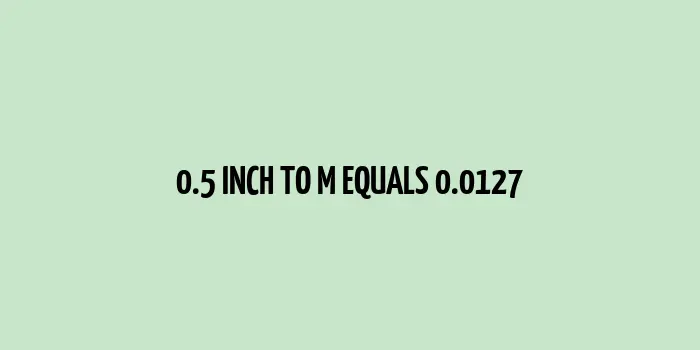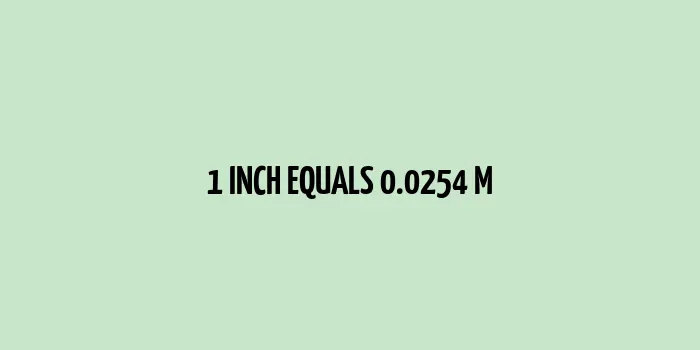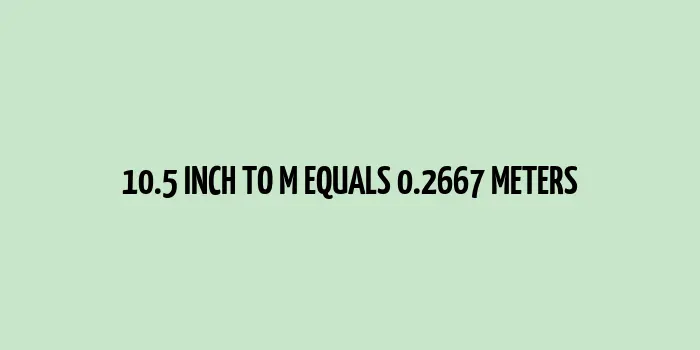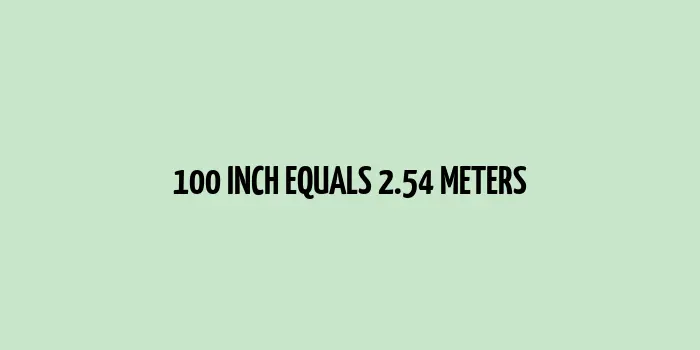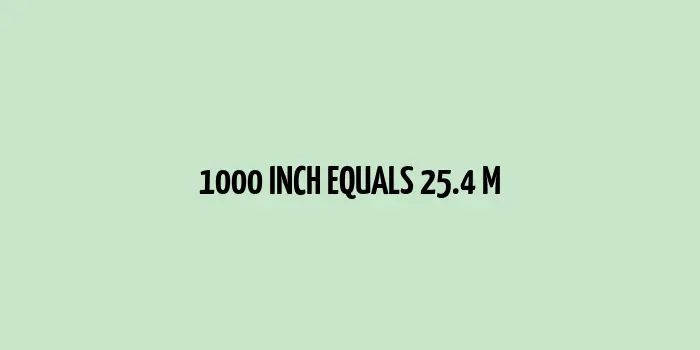25 inch to m (Inches to Meters)
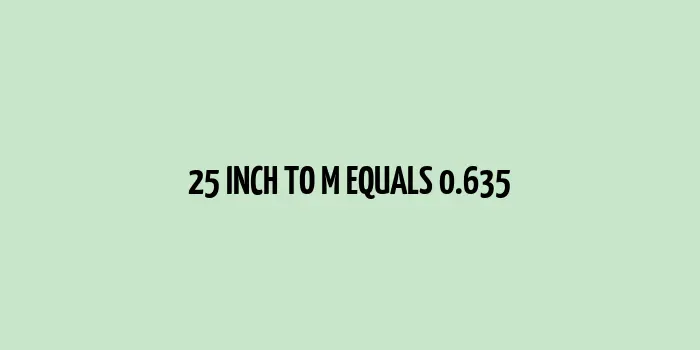
Let us understand the process of converting 25 inch to m
25 inches is equal to 0.635 meters. Knowing this conversion can help you understand measurements more accurately, whether you're planning a project, ordering materials, or simply curious about how to convert units from one system to another.
Converting inches to meters may seem complicated at first, but it is straightforward once you grasp the basics. Inches belong to the imperial system while meters are part of the metric system, often used in scientific contexts. Knowing the conversion from inches to meters is useful for international communication and technical applications.
In the past decade, global trade and international partnerships have increased the necessity of understanding multiple measurement systems. For example, over 80% of the world uses the metric system, highlighting the importance of unit conversions in businesses and daily life.
Why Conversion Accuracy Matters
Accuracy in measurement conversions ensures precision in various fields like engineering, construction, and manufacturing. For instance, a furniture design might list dimensions in inches, but a manufacturer based in Europe might require the measurements in meters.
Here’s how you can convert inches to meters:
- Understand the Conversion Factor: 1 inch equals 0.0254 meters.
- Multiply the Measurement in Inches by the Conversion Factor: In this case, ( 25 \times 0.0254 = 0.635 ).
This simple multiplication ensures you have an accurate conversion. Accurate measurements can save time and reduce errors, especially in technical and industrial settings.
The Metric System's Growing Importance
With globalization, the metric system's adoption is becoming more prominent. Nearly every scientific field relies on metric measurements to maintain consistency and accuracy. This shift is evident in newly developed countries standardizing business and educational materials to include metric units.
Did you know that about 80 countries mandate the exclusive use of the metric system? This fact underscores the importance of understanding these conversions to interact in a global market efficiently.
Converting 25 Inches to Meters in Daily Use
Consider this analogy: converting inches to meters is like translating a text from one language to another. While the core content remains the same, the representation changes to suit the audience better. Similarly, converting measurements ensures clarity and precision across different standards.
As globalization expands, more products list metric units alongside imperial ones, reflecting the trend towards universal understanding. Construction businesses often include metric units in design blueprints to accommodate international projects.
Practical Application and Example
For example, if you’re planning to buy a screen measuring 25 inches in diameter and want to know the size in meters, you multiply 25 by 0.0254 (1 inch equals 0.0254 meters), giving you 0.635 meters. Understanding this conversion can help you comply with specifications and avoid costly mistakes.
For more detailed information on measurement conversions, visit this comprehensive metric conversion guide.
FAQs
How many meters are in 25 inches?
25 inches equal 0.635 meters. You multiply 25 inches by the conversion factor of 0.0254 to get meters.
Why is converting inches to meters important?
Converting inches to meters is crucial for maintaining accuracy in scientific, engineering, and international business contexts. Accurate conversions are essential for avoiding errors in manufacturing and construction projects.
What is the formula to convert inches to meters?
The formula to convert inches to meters is simple: multiply the number of inches by 0.0254.
Is 25 inches a common size for measurements?
Yes, 25 inches is a common measurement in various products like monitors, televisions, and equipment parts, emphasizing the need for conversion knowledge.
Accurate conversions like 25 inches to meters help standardize measurements and improve communication in global transactions. Adopting these conversions ensures that you can work efficiently across different measurement systems.
